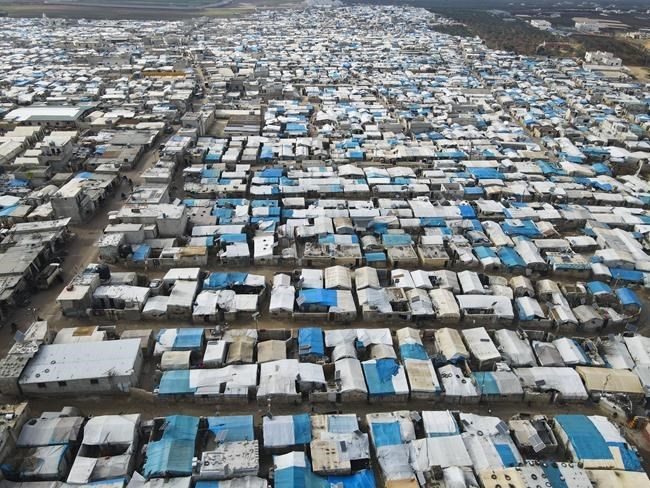OTTAWA — A judge has declared that four Canadian men being held in Syrian camps are entitled to the federal government's help to return home.
In a ruling Friday, Federal Court Justice Henry Brown effectively directed Ottawa to request repatriation of the men as soon as reasonably possible and provide them with passports or emergency travel documents.
Brown said the men are also entitled to have a representative of the federal government travel to Syria to help facilitate their release once their captors agree to hand them over.
The Canadians are among the many foreign nationals in Syrian camps and jails run by Kurdish forces that reclaimed the war-torn region from the extremist group Islamic State of Iraq and the Levant.
They include Jack Letts, whose parents John Letts and Sally Lane have waged a public campaign to pressure Ottawa to come to his aid. The parents say they have seen no evidence that their son became a terrorist fighter, adding that Jack stood against ISIL and was even put on trial for publicly condemning the group.
"We are overjoyed at today's ruling and believe we will finally get to see our son again after what has been a very long, arduous struggle against the Canadian government," Lane said.
"While we are concerned about the lack of time-frame appended to the judge's declaration on the men's repatriation, we trust that the government will adhere to his exhortation to bring them home as soon as possible."
Global Affairs Canada had no immediate comment Friday.
Family members of the men, as well as several women and children, had argued in court that Global Affairs must arrange for their return, saying that refusing to do so violates the Charter of Rights and Freedoms.
The government insisted that the Charter does not obligate Ottawa to repatriate the Canadians held in Syria.
Lawrence Greenspon, a lawyer for all of the applicants but Letts, reached an agreement this week with the federal government to bring home six Canadian women and 13 children.
"This is what we were hoping for," Greenspon said Friday.
"With the agreement of the Canadian government, the women and children are going to be brought home. And now, as a result of this judge's order, the four men that are in northeastern Syrian prisons will be brought home by Global Affairs Canada as well."
In his ruling, Brown said the Canadian men are not able to return home "in part because their government seems never to have formally requested their repatriation."
They are not able to enjoy "a truly meaningful exercise" of their Charter right to enter Canada unless and until the federal government makes a formal request to the Autonomous Administration of North and East Syria on their behalf, he wrote.
"Canada must make a formal request for their repatriation because otherwise the Court is asked to construe the Charter in an 'unreal world.'"
Brown said the conditions in the camps holding the Canadian women and children who were part of the court case "are, to say the least, very poor."
"In my view they are dire. These individuals live in crowded and unsanitary conditions. They are held without charge or trial, and lack adequate food and medical attention."
None of the men have been heard from since 2019, Brown noted, but indications point to even worse circumstances for them.
"While women and children live in tents, at least some of the men and perhaps many are held in small rooms or cells that are overcrowded and unsanitary."
This report by The Canadian Press was first published Jan. 20, 2023.
Jim Bronskill, The Canadian Press



